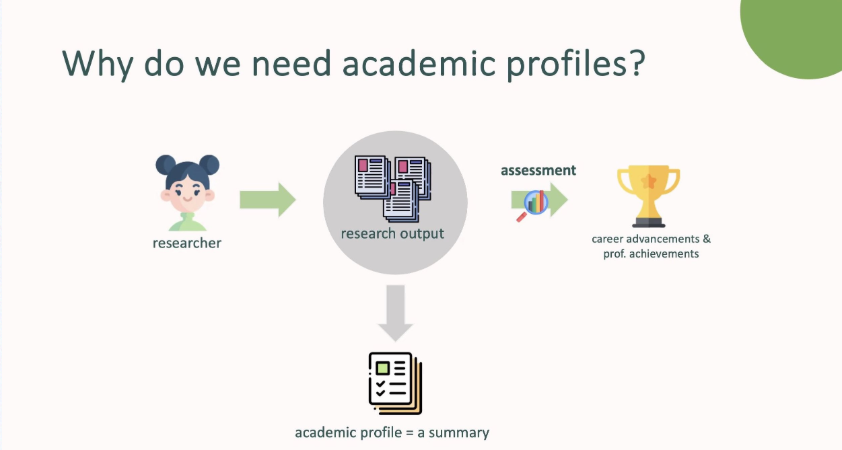In academia, the traditional emphasis on publications and their impact has often overshadowed other equally important activities of researchers. However, a paradigm shift in research culture and assessment is underway: Policymakers and the research community are reevaluating how we acknowledge researchers' contributions, aiming to recognize endeavors beyond conventional metrics.

BIP! Scholar aims to facilitate this transition offering a tailored platform for researchers to spotlight their work comprehensively and put it into the correct context. Researchers can create BIP! Scholar profiles from the contents of their ORCiD records (e.g., publications, datasets) and enrich them with valuable additional information like various types of indicators, contribution roles, related topics, and relevant narratives. Researchers can select to make their profiles public or keep them private (and use them for self-monitoring purposes).
As regards indicators, a wide range of researcher metrics, calculated using data gathered from the OpenAIRE Graph, is provided capturing a variety of aspects ranging from researchers’ productivity to their impact and compliance with Open Science practices. Regarding roles and topics, the service supports annotating research works with classes from the CRediT taxonomy and Wikidata concepts, respectively. Finally, regarding narratives, BIP! Scholar supports the creation of textual descriptions that describe interesting lines of work offering more context about the respective research outputs, like the among-them connections or their motivation and impact. Widely recognized templates for narrative CVs will be supported very soon.
BIP! Scholar profiles have an interesting dynamic feature: the viewer can select to display tailored views of a researcher’s profile exploring particular perspectives of their career. For example, it is possible to examine only those works that are relevant to particular topics of interest or those for which the researcher contributed with specific types of roles. Each time, the respective indicators are updated so that their calculation involves only those works that meet the selected criteria.
Objectives and learning outcomes:
- Learn the basics about scientific impact and its diverse aspects.
- Learn about the most important impact indicators, their proper usage, and common mistakes and misconceptions.
- Learn about the concept of narrative CVs and how it can be useful for research assessment.
- Learn the main functionalities of BIP! Scholar and how they can assist researcher assessment.
